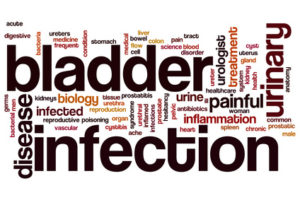What women suffering from recurring cystitis need to know
It may not be top of your priority list when you’ve just had sex, but anyone who’s experienced recurrent cystitis will tell you that a quick trip to the toilet as soon as possible is well worth the effort.
Cystitis is a urinary tract infection (UTI) experienced by roughly 40% of women in the UK. It occurs when bacteria which live harmlessly on the skin or in the rectum get into the urethra and travel up the urinary tract, causing irritation and inflammation of the bladder. Escherichia coli (E.Coli) lives in the rectum and perineal area and is the bacteria that causes most cases of cystitis. Women are significantly more likely to suffer from cystitis because their urethras are much shorter and are are situated much closer to their rectum.
Cystitis is not a sexually transmitted infection (STI), but it is more common in women who are sexually active. During sex, E. coli can easily be transferred to the urethra, and any minor damage to the urethral lining during sex can make it easier for bacteria to enter and spread. “Emptying your bladder as soon as possible after sex can help to ‘flush out’ any bacteria that might have made it into the urethra and prevent the onset of infection.” Dr. Kim Langdon, OB/GYN at Medzino.
It’s an easy preventative measure against symptoms such as pain or burning while peeing, an urgent and frequent need to pee, cloudy or strong smelling urine, pain in the lower abdomen and traces of blood in the urine. While cystitis is usually more annoying than dangerous, running to the toilet every 5 minutes, overcome with a burning desire to pee, is bound to disrupt your day. Not to mention that you’re not going to feel much like having sex in the few days it takes for the infection to clear up.
Whatsmore, cystitis is often recurrent, with some women reporting that they experience symptoms every few weeks or more. While mild infections can be treated at home by drinking as much fluid as possible and staying within reach of a toilet, chronic cystitis can lead to a more serious kidney infection which may require a short stay in hospital for treatment. If cystitis is troubling you on a regular basis, it is worth making a visit to your GP, who will be able to assess your symptoms and may prescribe a short course of antibiotics.
To be on the safe side, you can take some easy preventative measures at home to avoid cystitis in the first place. Go to toilet as soon as you feel the urge, always empty your bladder fully when you pee, and always wipe from front to back. When washing around your genitals, use mild, unscented soaps to avoid irritation. Using a contraceptive diaphragm during sex can increase your risk of getting cystitis, so you might want to try using condoms or a form of oral contraceptive instead. And finally, make a conscious effort to always, always pee after sex.
The post Here’s why you should always pee after sex appeared first on talkhealth Blog.
